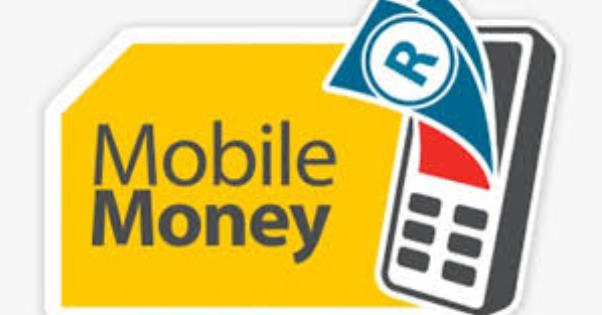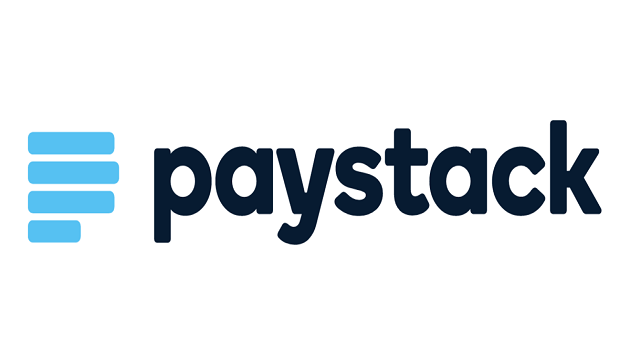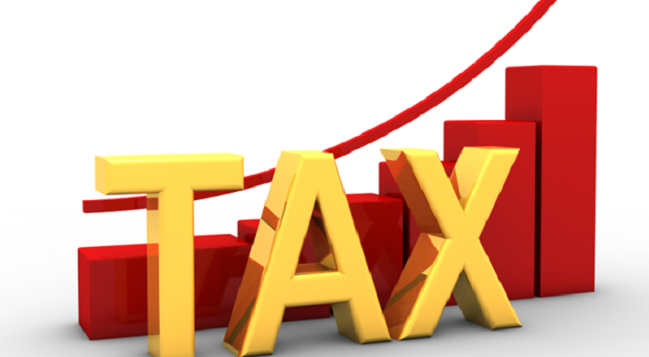E-Financial
Payment Service Banks in Nigeria, Lessons from the Past

By Emmanuel Okoegwale
Ten years ago, there was great optimism that the licensing of mobile money providers will usher in a new era in the drive for greater financial inclusion and fill the vacuum that the banks failed to fill for many years.
Ten Years after, the country has recorded some decent incremental improvements in the financial services sector through the mobile money operators but not the expected transformational leap, we had hope for. On the march again, the country has created a new category of financial services providers to be called, Payment service Banks.
The CBN in furtherance of its mandate to deepen financial inclusion in Nigeria is actively seeking to license Payment Service Banks in Nigeria which had been similarly deployed in other jurisdictions such as India.
Both countries are similar in areas of regulation that excluded mobile networks from mobile money and Banks that are cannot fill in the gaps, in serving the hard to reach places.
What’s difference between PSB and mobilemoney?
Permissible services for both in Nigeria are similar with few advantages for the PSB such as ability to mobilize deposits from individuals and small businesses, issue debit and pre-paid cards, invest in FGN bonds while both cannot give out loans, provide insurance underwriting and trade on foreign exchange market. No cap was mentioned in the framework on deposits mobilization allowed for PSBs.
Many reasons had been raised for the slow uptake of mobile money in Nigeria from low capitalized operations, fragmented agency network, exclusion of mobile network operators and some underlying bottlenecks like extensive delays in granting mass access channels like USSD and Sim tool kit channels to mobile money operators, were major hindrances to early take off and adoption.
The operational levers to drive a successful deployment are network effects, lack of financial access points in many rural areas, available mass market access channels, heavy marketing, channel leverage and incentives to drive last mile operations.
These are domain areas of mobile networks and these are some of the levers that mobile money operators lacked in India and Nigeria because they are non-Telcos however some of them, still managed to keep their heads, above the waters.
The Indian story so far
In 2015, 11 organizations were approved to commence payment service Bank services in India however three dropped out even before launch, with one of them citing, increased competition and time to recover profit on investments.
Some of the operators had been clamped by the regulator, due to inappropriate Know-you-customer implementation and some of the providers struggle to convert their huge subscriber base as envisaged to bank customers, the license also excluded the providers from lending.
Due to its limited offering, the commercial viability was no longer appealing to providers hence they struggle to stay afloat.
Shape of things to come in Nigeria
As Africa’s most populous nation, prepares to soften the ground for mobile network operators to participate in the financial services sector which had predominantly been the turf of the banks, it will be interesting to see how they will successfully convert their network assets to serve the large unbanked population in the country.
With MTN Nigeria woes seeming to be coming to an end over tax dispute with the Central bank of Nigeria and a planned listing on the Nigerian Stock Exchange later this year and armed with an approval -in-principle to launch payment service Bank, it will be the honey on the cookie pie for local and international stock investors.
The challenge non-telco operators of PSB will face, will be similar and may even be more than what the mobile money operators faced with them in the early days and even till date.
Why will the mobile network operator give equal-footing access to a competitor? What will the regulator do to enforce fair competition? What are the risk of granting non-telcos PSB licenses only for them to face similar challenges faced by licensed mobile money operators for ten years?
Some recommendations
The regulator may consider to upgrade some of the mobile money operator’s license to PSB if they have proven ability, maybe on a regional basis so that they don’t have spread themselves very thin to compete with what will be a significant competition (mobile networks) with lower paid-up capital requirements to compensate for their investment as frontier providers.
Addition of retail and low value lending approval to their license while they isolate the customer deposit pool if possible or allow only for a small percentage of the deposit pool for retail lending.
A proper assessment of non-telco and non-mobile money applicants for the PSB license to ensure they have compelling business cases, well capitalized and ability to overcome the challenges that almost muscled the mobile money operators in the last ten years.
In view of many initiatives in the market place that are driven largely by industry associations and regulations, innovations should be allowed to rather drive these initiatives, fair completion are enforced by the regulator for all technology access channels from telcos and access to government standard setting agencies for BVN, National ID for robust KYC and risk management purposes.
Emmanuel Okoegwale is Principal Associate, MobileMoneyAfrica
E-Financial
Paystack Expands Beyond Payments into Banking

Nigerian fintech giant, Paystack has taken its boldest step yet beyond payments, acquiring Ladder Microfinance Bank. The fintech giant has quickly rebranded its new acquisition as Paystack Microfinance Bank (MFB) in a strategic shift that could reshape how African businesses access credit, deposits, and embedded financial services.

After nearly a decade building the backbone of online payments in Nigeria, the deal gives Paystack regulatory cover to hold deposits, lend directly to businesses and offer banking-as-a-service products.
More importantly, Paystack’s chief operating officer, Amandine Lobelle, highlighted that it allows the company to exert greater control over the trillions of naira that already flow through its platform every month, turning transaction data into a powerful engine for credit and treasury products.
“After 10 years of building payment infrastructure and going deep, we realised that businesses needed more than just getting paid to grow. We wanted to leverage the expertise that we have built over the last decade to continue to address some of the pain points that businesses have,” said Lobelle.
Paystack MFB will operate as a sister company to its payments business, initially focusing on working capital loans, merchant cash advances, overdrafts and term loans for small and medium-sized enterprises.
By using real-time payment data to underwrite loans, Paystack believes it can offer faster approvals and more accurate risk pricing than traditional lenders, directly tackling Nigeria’s estimated $32 billion small business financing gap.
For Paystack, founded in 2016 and acquired by Stripe in 2020, the move marks a strategic evolution from being just a payments processor to becoming a core part of the financial operating system for African businesses.
Today, Paystack supports more than 300,000 businesses across Nigeria, Ghana, and South Africa and has become one of Africa’s most trusted fintech infrastructure providers.
The banking licence is a game-changer as payments, once Paystack’s main growth engine, are increasingly commoditised across Africa. Lending, deposits and treasury services offer deeper margins, stickier relationships and long-term sustainability.
By layering banking services on top of payments, Paystack is betting that infrastructure depth will outperform flashy consumer scale.
However, the move also throws the Nigerian-born fintech giant into fierce competition with digital -first lenders and neobanks such as Moniepoint, Kuda, OPay and PalmPay, which already operate at massive scale. Still, Paystack’s strength lies in its merchant-first focus and developer-friendly APIs.
E-Financial
FG Halts Tax Guidelines Amid Uncertainty Over Final Laws – Oyedele

Federal Government has suspended the issuance of implementation guidelines for the new tax laws due to lingering doubts about their final version, Taiwo Oyedele, Chairman of the Presidential Tax Reform Committee, disclosed on Wednesday.

Speaking in Lagos after delivering a keynote address on the 2026 Economic Outlook, organised by the Institute of Chartered Accountants of Nigeria (ICAN) under the theme ‘ICAN@60: Accountability as the Bedrock for National Development,’ Oyedele said he directed the Nigeria Revenue Service (NRS) and Joint Revenue Board (JRB) to hold off on guidelines.
He explained that his team purchased a printed copy from the government printer to verify authenticity, only to learn the National Assembly had seized all copies pending completion of its review. “The Acts Authentication Act says whatever the government printer publishes is the evidence of the law. But lawmakers said it’s not what they passed,” Oyedele stated.
Efforts by Nigeria CommunicationsWeek to reach Senate spokesman, Senator Yemi Adaramodu (APC, Ekiti South), and House of Representatives spokesman, Akin Rotimi, yielded no response, as calls went unanswered and messages unread.
Oyedele acknowledged legislative review as standard but stressed the access restriction reintroduces uncertainty. He instructed his staff to persistently follow up in person at the printer.
Oyedele dismissed allegations of significant alterations to the gazetted versions of the National Revenue Service (Establishment) Act, Joint Revenue Board of Nigeria (Establishment) Act, Nigeria Tax Administration Act, and Nigeria Tax Act, which took effect January 1.
He insisted minor discrepancies do not impact key elements like tax rates, burdens, or filing deadlines. In December, Rep. Abdussamad Dasuki (PDP, Sokoto) raised a privilege matter at the House plenary, highlighting differences between passed versions and gazetted copies after comparing them with Votes and Proceedings.
The House formed a seven-man probe committee, which reported by December 25. On January 3, the National Assembly released Certified True Copies (CTCs) affirming the original passed texts and rejecting the controversial gazettes.
Oyedele decried opposition to reforms, including paid protests and misinformation. “We’ve seen people paid N30 million to protest; the deal broke during sharing, and some spoke to media,” he revealed.
He cited a November 2025 incident where fake news triggered panic sales, wiping N4.6 trillion off the stock market despite exemptions for turnover up to N150 million annually. “That fake news led to real losses, even for pensioners via PFAs,” he warned.
Linking to the event theme, Oyedele called accountability the bridge from reforms to results, urging trust-building, knowledge-seeking, and execution focus.
Panelists advocated coordinated efforts. LCCI Director-General Dr. Chinyere Almona called for inter-agency engagement, technology, and centralised monitoring to resolve policy conflicts.
MAN Director-General Segun Ajayi-Kadir sought inclusive growth without hurting competitiveness, noting manufacturing’s sub-10% GDP share, sector challenges, and N2 trillion in unsold inventory.
Session chair Mohammed Hayatudeen described 2026 as a pivotal year post-2023/2024 turbulence, with stabilised inflation, exchange rates, and reserves, but persistent high poverty. He questioned if tax policy ambition matches administrative capacity.
ICAN President Mallam Haruna Nma Yahaya welcomed guests, emphasising accountability for economic stability amid fragile recovery. He highlighted 2025 gains: GDP growth over 4% in Q2, inflation easing to mid-14s, forex reserves at multi-year highs, trade surpluses, and PMI at 57.6.
Yet, he cautioned fragility without discipline. “Accountability is an economic imperative,” Yahaya said, citing global evidence on strong institutions, and urged practical solutions for governance.
E-Financial
Banks, Fintechs to Charge 7.5% VAT on Transfers, USSD, Cards from Jan 19

Federal Government has directed all banks and fintech companies to begin collecting and remitting a 7.5 per cent Value Added Tax (VAT) on specific electronic banking services, effective Monday, January 19, 2026.

Tax
Payment platforms issued email notices to customers on Wednesday, with Moniepoint sharing details that the VAT applies to electronic banking charges such as mobile money transfers, USSD transaction fees, and card issuance fees. For instance, a N100 transfer fee will attract N7.50 VAT, charged solely on the service fee and not the principal amount transferred.
The Nigeria Revenue Service (NRS), formerly the Federal Inland Revenue Service (FIRS), mandated commercial banks, microfinance banks, and electronic money operators to comply by the deadline. Moniepoint clarified the levy as a statutory obligation rather than a price hike, with VAT to appear separately on transaction statements.
Services like interest earned on deposits and savings remain exempt from the tax. Other operators are expected to notify customers soon, standardising collection across Nigeria’s digital economy to boost revenue.
This follows December notices from commercial banks about reclassifying the N50 Electronic Money Transfer Levy (EMTL) as stamp duty on transfers of N10,000 and above, now a one-off fee under the new Tax Act. The measures align with ongoing tax reforms amid uncertainty over final laws, as noted by Taiwo Oyedele last week.
Customers can expect clear itemisation of VAT on statements, supporting government efforts to enforce uniform rules on digital transactions.

 General News2 days ago
General News2 days agoPalmPay, Premier Cool to Reward 10,000 Nigerians with ₦100m in “10k for 10k Campaign”

 News3 days ago
News3 days agoNigeria, Others Lag Behind as Egypt Tops Africa in AI Readiness

 E-Financial2 days ago
E-Financial2 days agoEcobank Joins Trillion-naira Club for the First Time in 20 Years

 E-Business2 days ago
E-Business2 days agoKaspersky Warns Telecom Threats from 2025 will Carry into 2026 as New Technology Adds New Risk

 E-Business2 days ago
E-Business2 days agoNigerian Terra Industries Secures $11.8m for Expansion

 Telecom2 days ago
Telecom2 days agoSHELT Named in Prestigious 2025 MSSP 250 List for Cybersecurity Excellence

 E-Financial1 day ago
E-Financial1 day agoAngst as FG Demands 7.5 Percent VAT on Mobile Bank Transfers, USSD

 News1 day ago
News1 day agoMoniepoint Launches Second Cohort of DreamDevs Initiative to Double Down on Africa’s Tech Talent Pipeline



















